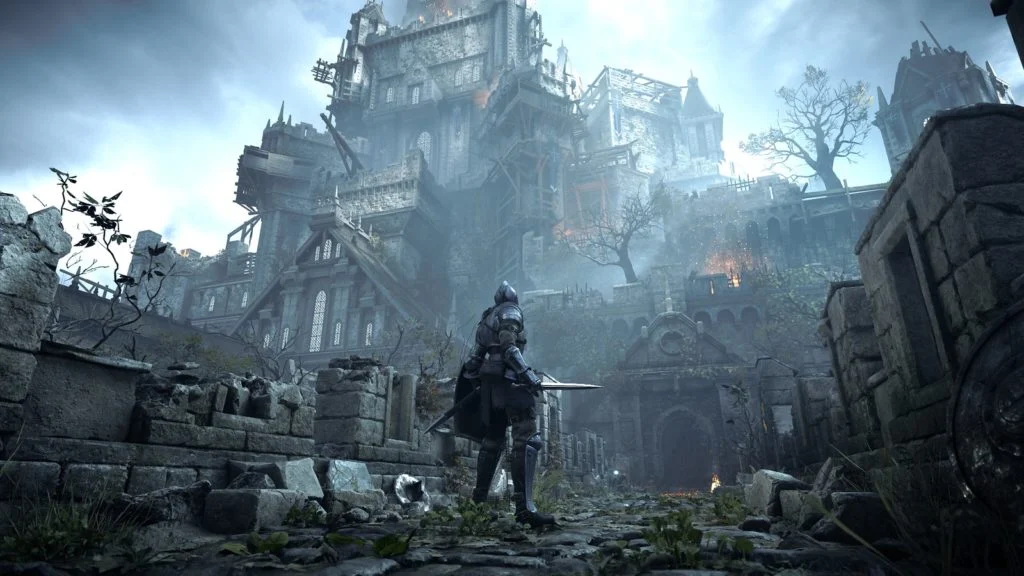What began as a niche experiment with Demon’s Souls in 2009 has since evolved into a cultural phenomenon, inspiring an entire subgenre of challenging, atmospheric action RPGs dubbed “Soulslikes.” But the road to this legacy was anything but smooth, and a pivotal moment in that journey came when FromSoftware chose to part ways with Sony for the publication of Dark Souls. The reason? A deep-seated disappointment over how Sony handled Demon’s Souls, according to former Sony Interactive Entertainment (SIE) president Shuhei Yoshida.

The Roots of Discontent
Demon’s Souls, developed by FromSoftware in collaboration with Sony Japan Studio, was a bold departure from the mainstream gaming trends of its time. Released exclusively for the PlayStation 3 in 2009, it embraced punishing difficulty, cryptic storytelling, and innovative online mechanics—elements that would later define the Souls series. Initially slated for a global release under Sony’s banner, the game’s high difficulty and lukewarm early playtest reception caused Sony to hesitate. Shuhei Yoshida himself famously recounted spending two hours with a near-final build of Demon’s Souls, only to find himself stuck at the starting point. “This is crap. This is an unbelievably bad game,” he recalled thinking, a sentiment that reflected Sony’s broader skepticism about its Western appeal.
As a result, Sony opted not to publish Demon’s Souls outside Japan. Instead, Atlus stepped in for the North American release, and Bandai Namco handled distribution in Europe. This decision proved to be a miscalculation: Demon’s Souls defied expectations, garnering a passionate cult following and critical acclaim in the West. Its success caught Sony off guard, but the damage to their relationship with FromSoftware had already been done.

A Sequel Denied
By the time Demon’s Souls began gaining traction, FromSoftware was already at work on its spiritual successor—what would eventually become Dark Souls. Sony, recognizing the game’s unexpected popularity, approached FromSoftware with an offer to collaborate on a sequel, tentatively referred to as Demon’s Souls 2. However, the studio declined. “FromSoftware was already working on the sequel, but they were so disappointed with how PlayStation treated them,” Yoshida later explained on the Sacred Symbols podcast. “We wanted to work with them again, but they passed on it.”
This rejection wasn’t merely a business decision—it was personal. Sony’s reluctance to fully back Demon’s Souls left a sour taste, prompting FromSoftware to seek a partner they felt would better support their vision. Enter Bandai Namco, a publisher willing to take a chance on the multiplatform release of Dark Souls across PlayStation 3, Xbox 360, and later PC. The move paid off spectacularly: Dark Souls, released in 2011, amplified the groundwork laid by its predecessor, cementing FromSoftware’s reputation and reaching a far broader audience than a PlayStation exclusive ever could have at the time.
A Relationship Rekindled—But Not Without Irony
Despite this fallout, the rift between FromSoftware and Sony wasn’t permanent. Just a year after Dark Souls launched, the two companies reunited to create Bloodborne, a PlayStation 4 exclusive that many consider one of director Hidetaka Miyazaki’s finest works. “We have huge respect for Miyazaki, and we were able to work with them again,” Yoshida noted, reflecting on the collaboration with evident fondness. Bloodborne’s gothic brilliance and commercial success seemed to mend old wounds, proving that both parties could still find common ground.
Yet the irony remains stark. Had Sony seen the potential in Demon’s Souls from the outset, the Souls series might have remained a PlayStation exclusive franchise, altering the trajectory of both FromSoftware’s legacy and the gaming industry at large. Instead, their initial skepticism handed Bandai Namco a golden opportunity, allowing Dark Souls and its sequels to flourish as multiplatform juggernauts. Today, with Sony holding a significant stake in FromSoftware’s parent company, Kadokawa, and having published the acclaimed Demon’s Souls remake for PlayStation 5 in 2020 (developed by Bluepoint Games), the two entities appear more aligned than ever—but the what-ifs of their early misstep linger.
Lessons Learned and a Genre Born
Sony’s initial dismissal of Demon’s Souls wasn’t just a missed opportunity; it was a failure to anticipate the appetite among gamers for a new kind of challenge. Yoshida has since admitted as much, lamenting that “we definitely dropped the ball from a publishing standpoint.” Meanwhile, FromSoftware’s decision to pivot to Bandai Namco showcased their resilience and foresight, ensuring that their vision reached players unencumbered by corporate doubt.
The fallout over Demon’s Souls ultimately birthed Dark Souls as we know it—a game that transcended its origins to become a cornerstone of modern gaming. It’s a testament to FromSoftware’s determination and a reminder that even the most celebrated successes can stem from moments of discord. As the Soulslike genre continues to thrive, with titles like Elden Ring pushing boundaries further still, the story of FromSoftware’s break from Sony stands as a fascinating chapter in the evolution of an unlikely dynasty—one forged not just in brilliance, but in disappointment.






